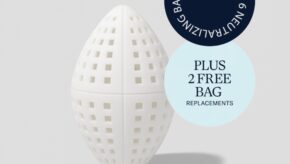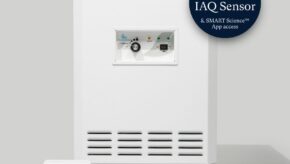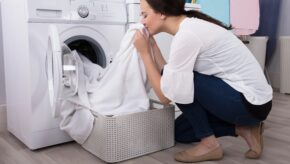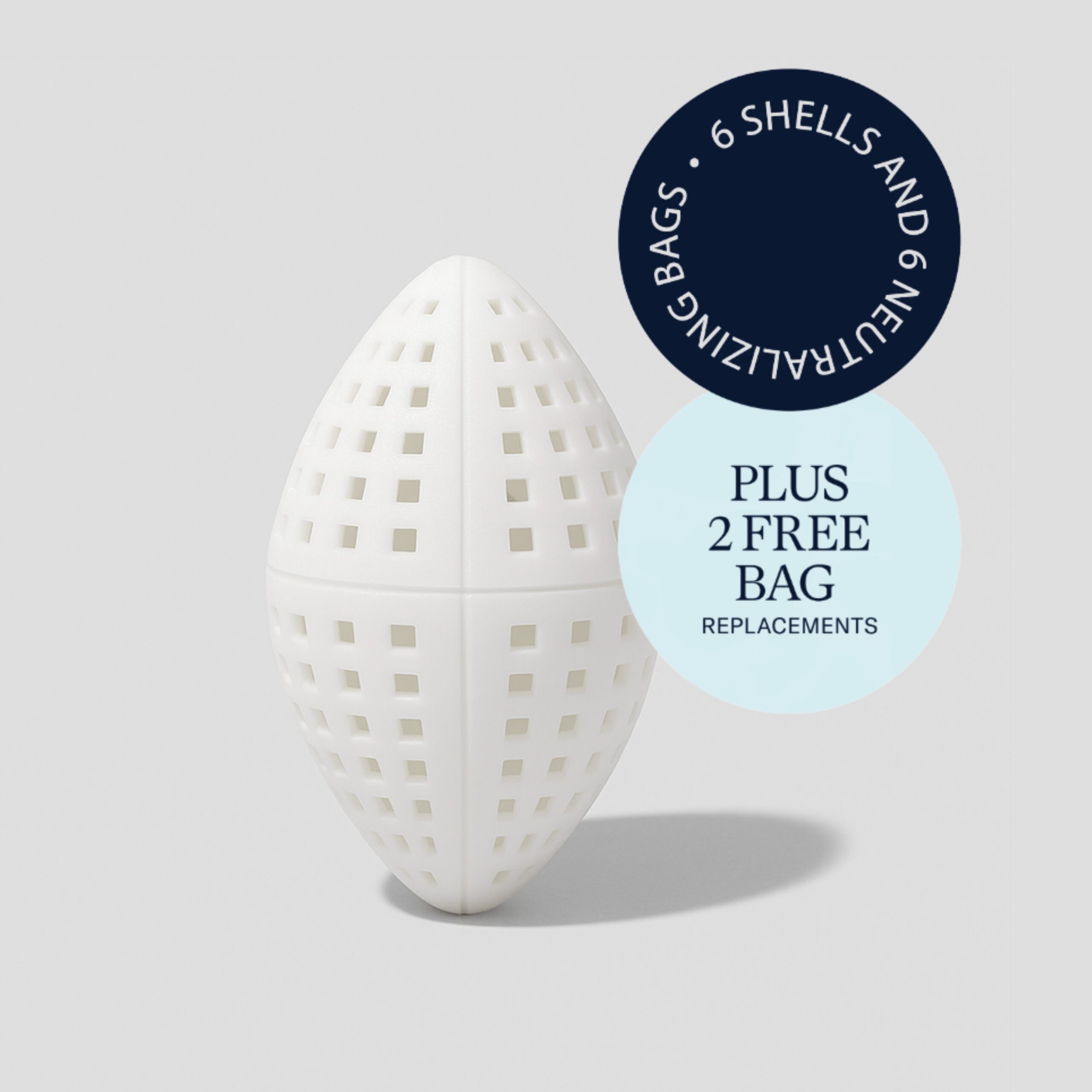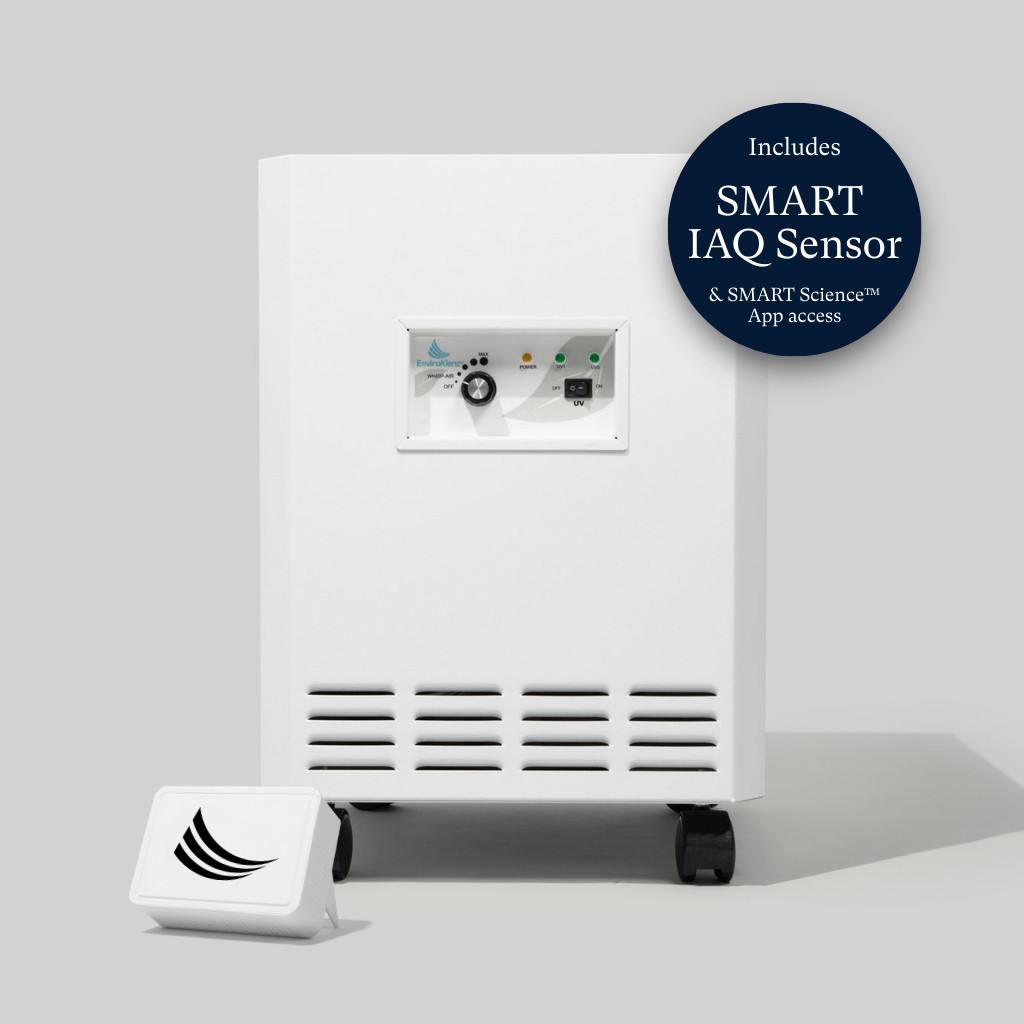A lot of factors contribute to good health – a balanced diet, regular exercise, good sleep, fresh air.
Speaking of air, one of the most essential factors to achieve a healthier living at home is good air quality. The average person spends 90% of their time indoors, so you understand how essential indoor air quality is.
As Roman poet Virgil said some 2,000 years back in time, “the greatest wealth is health”. Much has changed over the centuries, yet some things remain the same.
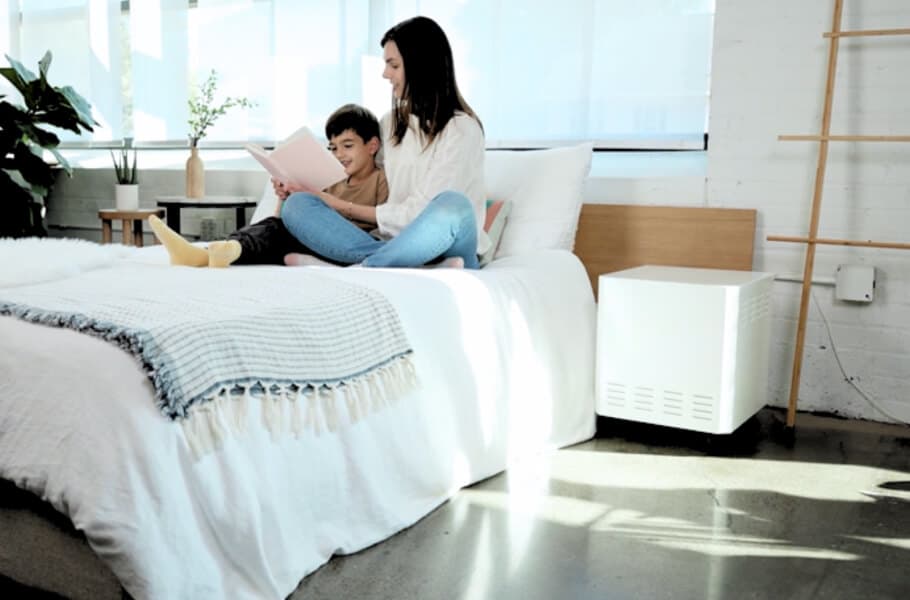
Today, we are going to learn about good air quality, how to improve indoor air, and much more.
What Is Good Air Quality?
According to the US Environmental Protection Agency (EPA) standards, air quality index (AQI) values are divided into six categories:
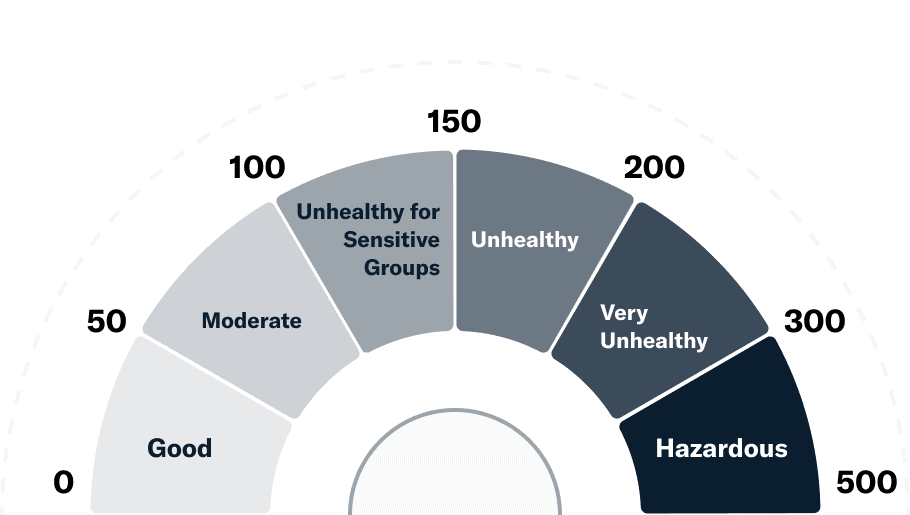
Ultimately, what is good air quality? Everything under 50 is considered satisfactory and poses little to no health risks. Meanwhile, everything over 300 is regarded as dangerous, and the entire population is very likely to be affected by serious health effects.
If you want to check out the air quality in your part of the world, you can check out this real-time air quality index.
Indoor Air Pollution: Why You Should Care About It?
Let’s take a look at a few telling indoor air pollution statistics that will help us understand why it is so important to keep a healthy air quality at home.
- In 2019, 2.3 million deaths worldwide were attributed to indoor air pollution.
- Every year, 6.7 million premature deaths are associated with the effects of ambient and household air pollution.
- 44% of all pneumonia deaths in children less than 5 years old is related to exposure to indoor air pollution.
These stats are truly grim. Fortunately, there is light in the tunnel – here is what you can do to avoid the negative outcomes of bad air quality.
How to Improve Air Quality at Home: Identify Sources of Indoor Air Pollution
You might have the feeling that there is not much you can do to improve air quality outdoors, however, your indoor air quality depends entirely on you. Still, in order to understand how to improve air quality at home, you must first identify common sources of indoor air pollution, like:
- Tobacco smoke. One of the biggest indoor air pollutants, tobacco smoke, or secondhand smoke cause over 480,000 deaths every year. Cigarette smoke contains more than 70 carcinogens and around 7,000 chemicals that are harmful to your health. Tobacco is definitely one of the most avoidable sources of pollution. If you stop smoking, you can greatly improve your health, and air quality.
- Cleaning products. Whenever you clean your home, your idea is to improve the overall quality of your living environment, and remove dust, etc. Unfortunately, many cleaning products, including air fresheners, cleaning agents, disinfectants, and laundry detergents, actually cause indoor air pollution, since they emit volatile organic compounds (VOCs). Exposure to VOCs can lead to nausea, headaches, nose, eye or throat irritation, and even cancer in some extreme cases. Your best course of action is to look for non-toxic cleaning products.
- Natural gas. Natural gas stoves are another source of indoor air pollution. They can release carbon monoxide, nitrogen dioxide, formaldehyde, and other harmful pollutants into the air. These gas stove emissions can lead to negative health effects. Furthermore, a study from 1992 shows that kids who live in a home with gas are 20% more likely to develop respiratory illnesses.
- Pet dander. Those who have pets know that it is impossible to completely eliminate pet hair, and pet dander. You see, pet dander is microscopic, and it can stay in the air for a long period of time, sticking to furniture, bedding, and other household items. The best way to combat pet dander is to vacuum regularly, and thoroughly, and use an air purifier.
5 Ways to Achieve a Healthier Living at Home: Clean Air
- Have Proper Ventilation
- Use Natural Cleaning Products
- Avoid Smoking Indoors
- Get an Air Purifier
- Grow Houseplants
1. Have Proper Ventilation
Proper indoor ventilation is essential for good air quality. The airflow helps remove indoor pollutants and lets in fresh air from outside.
You should ventilate your home every day, and the best ways to do so include opening doors and windows, and adding fans in areas of high moisture.
The only case when you should not open your windows to let outdoor air in is when the air outside is above 150 AQI, meaning it is unhealthy.
2. Use Natural Cleaning Products
As we mentioned, some cleaning products can actually cause more harm than good. So, one of the keys to healthy air quality is to use natural cleaning products, whenever possible. This includes surface cleaning solutions, and even your laundry care products that treat your clothing, bedding, and linens throughout the home.
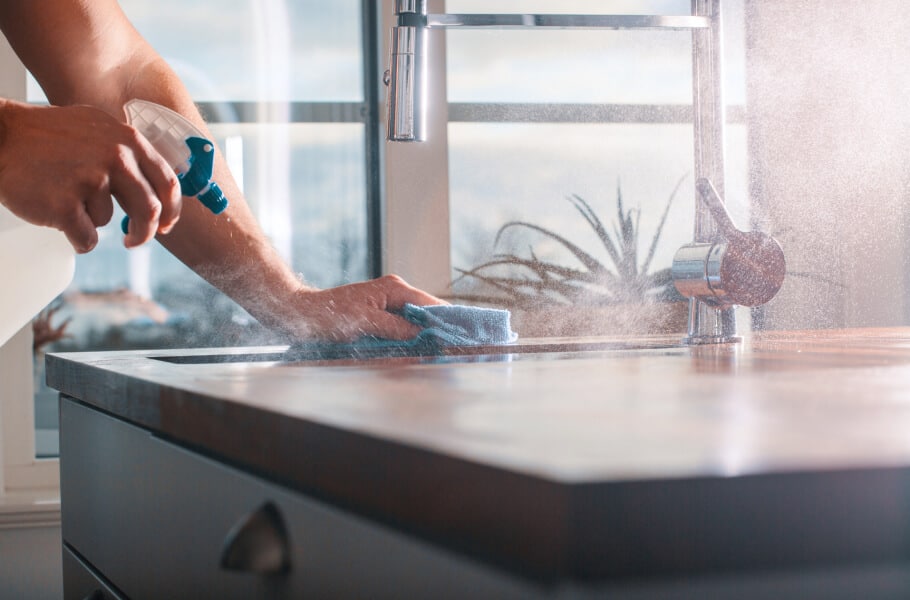
As a bonus tip – every time you are cleaning your home, you can try to get rid of unnecessary items. This will not only free space but also reduce the places for dust to hide, ultimately allowing you to breathe more clean air.
3. Avoid Smoking Indoors
The best choice for your health would be to stop smoking altogether. Still, the least you can do is to avoid smoking indoors. That is the easiest way, in case you are curious about how to improve air quality at home.
In case you are living with someone who smokes, try talking to them and setting some rules, so that they do not smoke inside, since secondhand smoke, or passive smoking, is as bad as if you were smoking yourself. Is essential for achieving healthier living at home.
4. Get an Air Purifier
Many people are wondering: do air purifiers improve health? The answer is – yes, yes they do. Think of an air purifier as a cheat code in a video game – it allows you to access a whole new level in terms of air quality.
Air purifiers not only improve the quality of air you breathe, but can also capture 99.9% of viruses, bacteria, and other harmful air molecules. In particular, the air purifiers of EnviroKlenz guarantee purely fresh air in your home, office, and beyond. This is because EnviroKlenz uses safe earth mineral technology to capture and neutralize airborne contaminants and odors for good, locking in the bad things from your air and releasing pure, clean breathing air as a result.
5. Grow Houseplants
Did you know that houseplants can actually improve the quality of indoor air? They absorb carbon dioxide and can remove volatile organic compounds (VOCs) from the air.
There are a lot of plants that improve indoor air quality, but these are some of the best air purification plants:
- Barberton Daisy
- English Ivy
- Mother-in-Law’s Tongue (Snake Plant)
- Aloe Vera
- Broad Lady Palm
- Weeping Fig
- Chrysanthemum
- Peace Lily
- Golden Pothos
- Scarlet Star Bromeliad
Unfortunately, relying solely on houseplants to completely purify the air you breathe, eliminate hazardous particles, and practically help your healhtier living at home will not be enough. It is best to use indoor plants in combination with air purification systems to achieve the best results.
Bonus Tip: Control Temperature and Humidity
Most people think about temperature and humidity solely as comfort metrics. However, both can have a significant impact on indoor air quality and ultimately our health.
The ideal room temperature varies, depending on the surrounding climate, and the individual, but generally, it is around 68-72 °F (20-22 °C).
In terms of humidity, the best indoor humidity should be between 30-50%, according to EPA, and never go above 60%.
When temperature and humidity levels become too high, some chemical reactions are accelerated, leading to higher production of ozone, and other hazardous compounds.
In the opposite scenario, if the indoor temperature is too low, the air becomes very dry, which results in low indoor humidity levels. This can cause problems like dry skin, stale air, and a higher concentration of indoor air pollutants like dander, dust, pollen, and mold.
Your best choice is to keep a balanced level of humidity, and regular temperature control, as to avoid low air quality, and the negative effects that come with it. A good way to monitor this is to actively track your air quality through an IAQ monitor, which can give readings on your current indoor air quality and alert you when levels of humidity, temperature, or pollutants are exceeding healthy limits.
Conclusion
If you are serious about achieving healthy living at home, you need to follow the proper guidelines, including ventilating properly, using eco-friendly cleaning products, getting air purifiers, and placing houseplants.
It would be all worth it in the end, since your health should always come first place, and good air quality plays a big role in leading a healthier life. Get started today for healthier breathing tomorrow.
